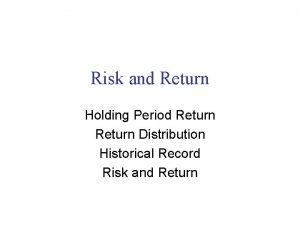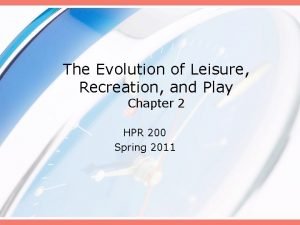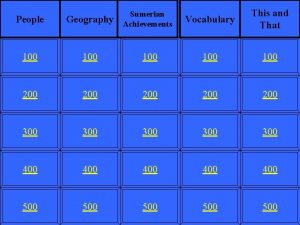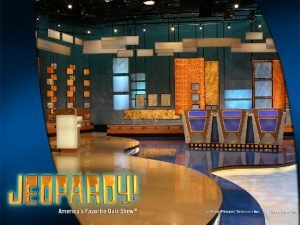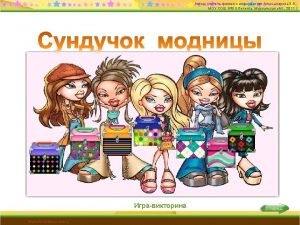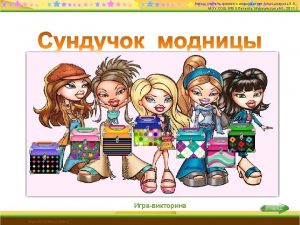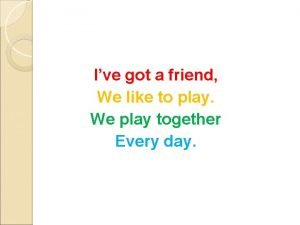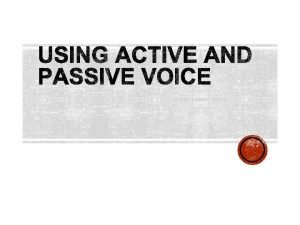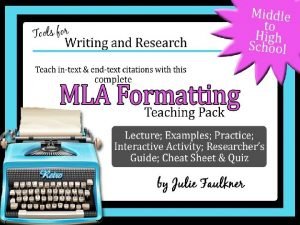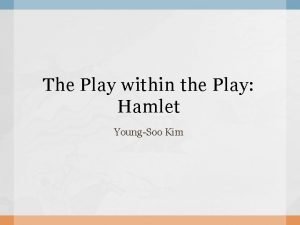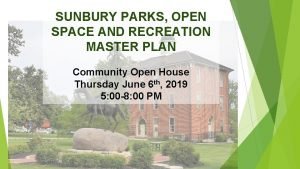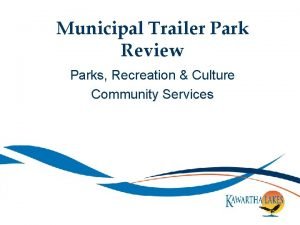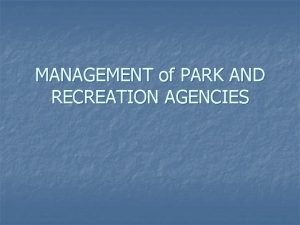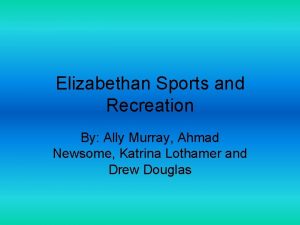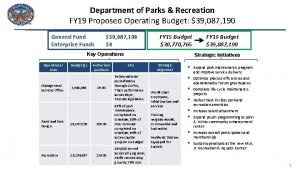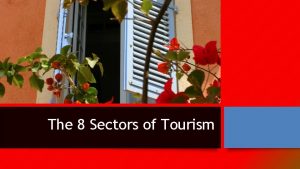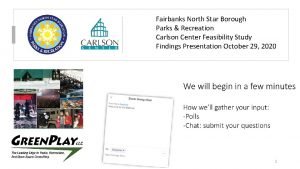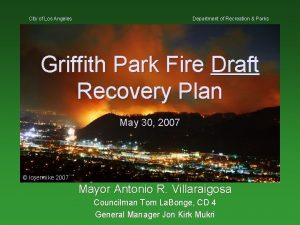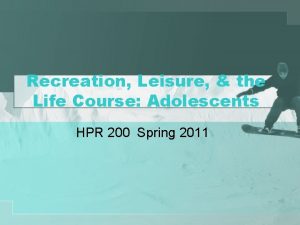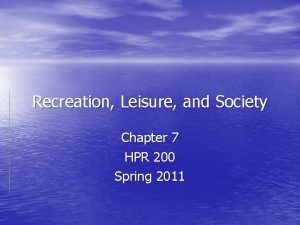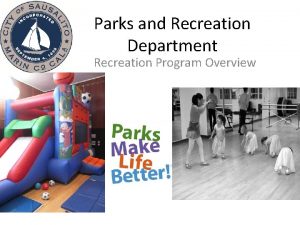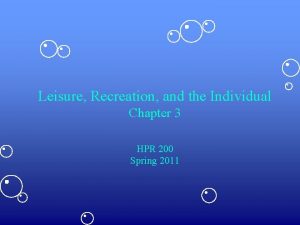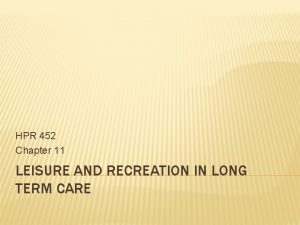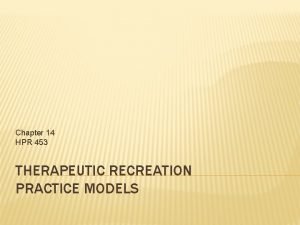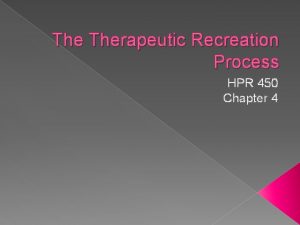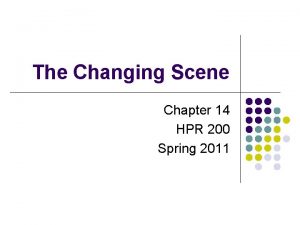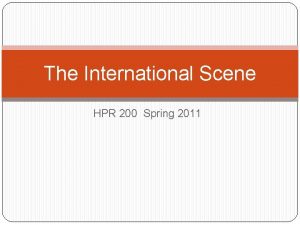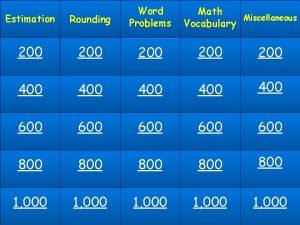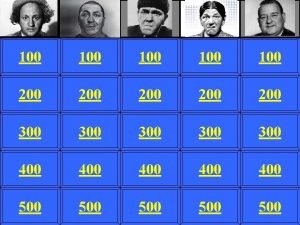Play Recreation and the Life CourseChildren HPR 200























- Slides: 23

Play, Recreation, and the Life Course--Children HPR 200 Spring 2011

Obstacles • Less physically active • Family changes • Pressure

Stages of Child Development • Infancy • Early childhood – Toddler – Preschool • Middle childhood

Stages of Game Play Age Stage Level Process Teaching 1 -5 Egocentric Self-play Parallel play Exploration Imitation Exploration Problem solving 4 -8 Cooperative Partner Small group Imitation Prediction Analysis Synthesis Problem solving Guided discovery 7 -12 Competitive Small group Team Testing Contesting Analysis Synthesis Evaluation Problem solving Guided discovery Command

Infancy • • 0 -18 months Force motor development skills? ? Gentle stimulation Grasping Hand-eye coordination Freedom and space Infant exercise class

Early Childhood • • • 18 months to 5 years old Egocentric Self-expression Emotional and social adjustment Learning language • Toddler • Preschooler

Toddler • • 18 months to 3 years Active explorers Attention span Movement and sensation Parallel play Imagination Gross-motor skills

Preschoolers • • • 3 -5 Mobility Gender Energy Handling objects Seeking out others

Middle Childhood • • 5 -12 Slow steady growth Fine motor skills Variety of growth rates Gender Simple rules Cooperative play ADD

Activity • Groups of 5 • Develop skit for assigned age group • Skit should show age appropriate age activities • Perform skit for class • Class will identify characteristics of the age group

Toys • • Age appropriate Gender differences? Imagination Cooperation Turn taking Organizing Physical coordination Spatial relationships

Playgrounds • • Boston Sand Garden Traditional Contemporary Adventure Modern Safety Individuals with disabilities

Games • • • Play versus game Pursuit of a goal Created games New games Cooperation versus competition

Sports • • Little league baseball Physical fitness Discipline Respect Dedication Teamwork Individuals with disabilities

Problems with Sports? • • • Levels of participation Intensity Injury Adults Maturation level Fun Losing

Play, Recreation, and the Life Course--Children Review

All of the following are psychological benefits/effects of leisure EXCEPT: • • • Deference Autonomy Justice Relaxation Satisfaction

When discussing the biological interpretations of play, the following theorist suggested that play prepares young people for the demands of life: • • • Fredrich von Schiller George Herbert Mead Joseph Lee Karl Groos Sigmund Freud

Name AND define three essential elements of leisure.

Essential Elements of Leisure • Perceived freedom • Autotelic nature • Beneficial outcome

Identify the five components of recreation.

Recreation • • • Voluntary Organized Socially redeeming Fun Free time

Leisure and Individuals with Disabilities • Individuals with physical disabilities • Individuals with cognitive disabilities • Individuals with emotional/behavioral disabilities • Older adults
 Nominal rate of return
Nominal rate of return Hpr talent
Hpr talent 100+200+200
100+200+200 Leisure
Leisure 200+200+100+100
200+200+100+100 600+800+800
600+800+800 100 + 100 = 200
100 + 100 = 200 200 + 200 + 300
200 + 200 + 300 200+200+300+300
200+200+300+300 100 + 200 300
100 + 200 300 I've got a friend we like to play we play together
I've got a friend we like to play we play together Play random play basketball
Play random play basketball Typewriter types
Typewriter types Hamlet kim
Hamlet kim Family and morale welfare and recreation
Family and morale welfare and recreation Parks sunbury
Parks sunbury Parks and recreation trailer
Parks and recreation trailer Parks and recreation vision statement examples
Parks and recreation vision statement examples Management of park and recreation agencies
Management of park and recreation agencies Alchin lk
Alchin lk Parks and recreation organizational chart
Parks and recreation organizational chart 8 tourism sectors
8 tourism sectors Carlson center fairbanks events
Carlson center fairbanks events City of los angeles department of recreation and parks
City of los angeles department of recreation and parks
